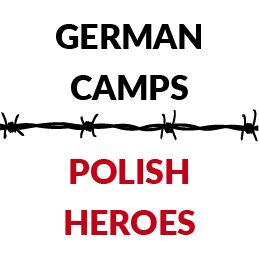
Poland has a lot of enemies. There is no doubt that Russia’s historical policy is aimed against Poland. Some influential circles in Germany are also striving to diminish the German responsibility for the atrocities of World War II.
In conversation with Wojciech Roszkowski, PhD, President of the Board of Trustees of the Museum of Polish History and the author of popular books on Poland’s recent history.
How can we tell our history to attract global audiences?
It is extremely difficult for the Polish account to reach global audiences, especially as history is considered rather boring in the West. This does not mean, however, that we should just sit back and wait. On the contrary, we should constantly seek new opportunities to promote our perspective. For example, as the leading broadcasters and publishing houses in the West are unavailable to Polish authors, we should perhaps invite foreign historians to Poland to immerse them in our history. We should do everything in our power to raise awareness of Polish history in the West. Events such as the Warsaw Uprising must not be ignored, as they help us fight the negative stereotypes about Poland as a country complicit in German atrocities.
How common are these stereotypes?
Unfortunately, they are very common. Even US President Barack Obama used the phrase “Polish death camps” in his address as he posthumously awarded the Presidential Medal of Freedom to the legendary envoy of the Polish Underground State Jan Karski. It was pure mistake, not the ill will of the President of the United States or his advisers. However, these mistakes are made due to ignorance and deliberately perpetuated stereotypes.
Who is perpetuating these stereotypes?
Poland has a lot of enemies. There is no doubt that Russia’s historical policy is aimed against Poland. Some influential circles in Germany are also striving to diminish the German responsibility for the atrocities of World War II. We are talking about a huge number of distortions and manipulations. That is why people in the West believe that Dachau is a Nazi concentration camp. Auschwitz in turn is referred to as Polish, even though a lot of Polish people lost their lives there.
What can we do when foreign media use the term “Polish camps”?
We must act more firmly, that is, more firmly than the previous government. In my view, we should caution foreign media against using such phrases as “Polish concentration camps”. They must realise this is hate speech pure and simple, and the denial of German atrocities and war crimes. Such warnings are embraced by the people more easily than talking about Polish dignity. We should also focus more on prevention. One of the Polish NGOs circulates such warnings among the media before every major World War II anniversary. Each and every action that educates foreign journalists and raises the awareness of “Polish camps” is more than welcome. We have to stay consistent in our actions. This is the only way to change the existing state of affairs. We have a long way to go, however.



